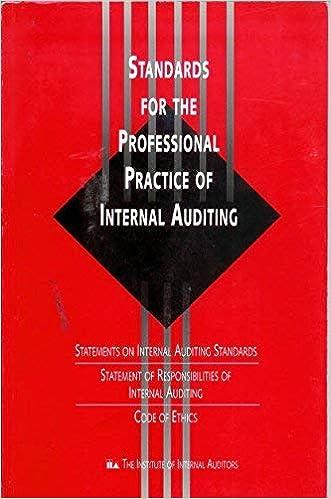Question
Case 1 Follow the instructions to work through the calculation of cost per billable test for a drug screen composed of five independently measurable assays,
Case 1
Follow the instructions to work through the calculation of cost per billable test for a drug screen composed of five independently measurable assays, using the following information:
- Instrument was purchased for $116,000 and is depreciated over a period of five years
- The service contract for the instrument is $9,212 per year
- The laboratory reports 539 drug screens per month
- The reagent costs are as follows:
| Reagent | Cost per Kit | Annual Usage |
| Amphetamines | $135 | 128 kits |
| Barbiturates | $130 | 125 kits |
| Benzodiazepines | $130 | 133 kits |
| Cocaine | $145 | 129 kits |
| Cannabinoids | $115 | 146 kits |
- From the budget report you have spent the following:
| Medical supplies | $205,874 |
| Non-medical supplies | $51,722 |
| Other direct expenses | $47,892 |
| Travel and education | $22,171 |
| Salaries | $1,892,364 |
Total billable tests for the year = 789, 352
- Calculate the equipment cost over five years (same amount of time as the depreciation period) by dividing the cost of the instrument by the number of drug screens that would be performed over five years (assume that the number of screens per month will not change).
- Calculate the cost of the service contract by dividing the contract price by the annual usage
- Calculate the annual reagent cost by multiplying the cost per kit by annual usage, adding up the totals, and dividing by the number of billable drug screens per year.
- Calculate the annual costs by dividing each category of the budget report by the total annual billable tests
- Calculate the cost per billable drug screen by adding up each cost calculated in questions 1-4
Case 2
Your institution is considering the purchase of a new cell counter for hematology. You have evaluated many models from several manufacturers and have narrowed your choice down to two. Both companies offer reagent rental agreements as one purchasing option. Based on the following information, which instrument and which option is the most economical?
|
| Instrument 1 | Instrument 2 | ||
|
| Purchase | Lease | Purchase | Lease |
| Purchase Price | $87,750 | $0 | $78,000 | $0 |
| Service Agreement (annual cost, to be maintained for 4 years) | $15,150 | $0 | $16,310 | $0 |
| Reagent Cost (per test) | $0.85 | $1.10 | $0.90 | $1.14 |
The reagent pricing is based on a daily test volume of 265 samples per day
- Calculate the service agreement costs for each instrument by multiplying the annual cost by 4 years (the contract length indicated in the instrument table)
- Calculate the reagent cost for each instrument/payment option for a five year period (standard time period when evaluating costs) by multiplying the reagent cost per test by the number of tests performed each year.
- Calculate the cost to purchase or lease each instrument by adding up the instrument cost, 4 year service agreement cost (calculated in question 1), and 5 year reagent cost (calculated in question 2).
- Based on the overall cost for each instrument/payment option calculated in question 4, which is the best choice (lowest overall cost) for your laboratory?
Step by Step Solution
There are 3 Steps involved in it
Step: 1

Get Instant Access to Expert-Tailored Solutions
See step-by-step solutions with expert insights and AI powered tools for academic success
Step: 2

Step: 3

Ace Your Homework with AI
Get the answers you need in no time with our AI-driven, step-by-step assistance
Get Started


